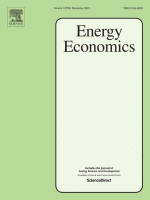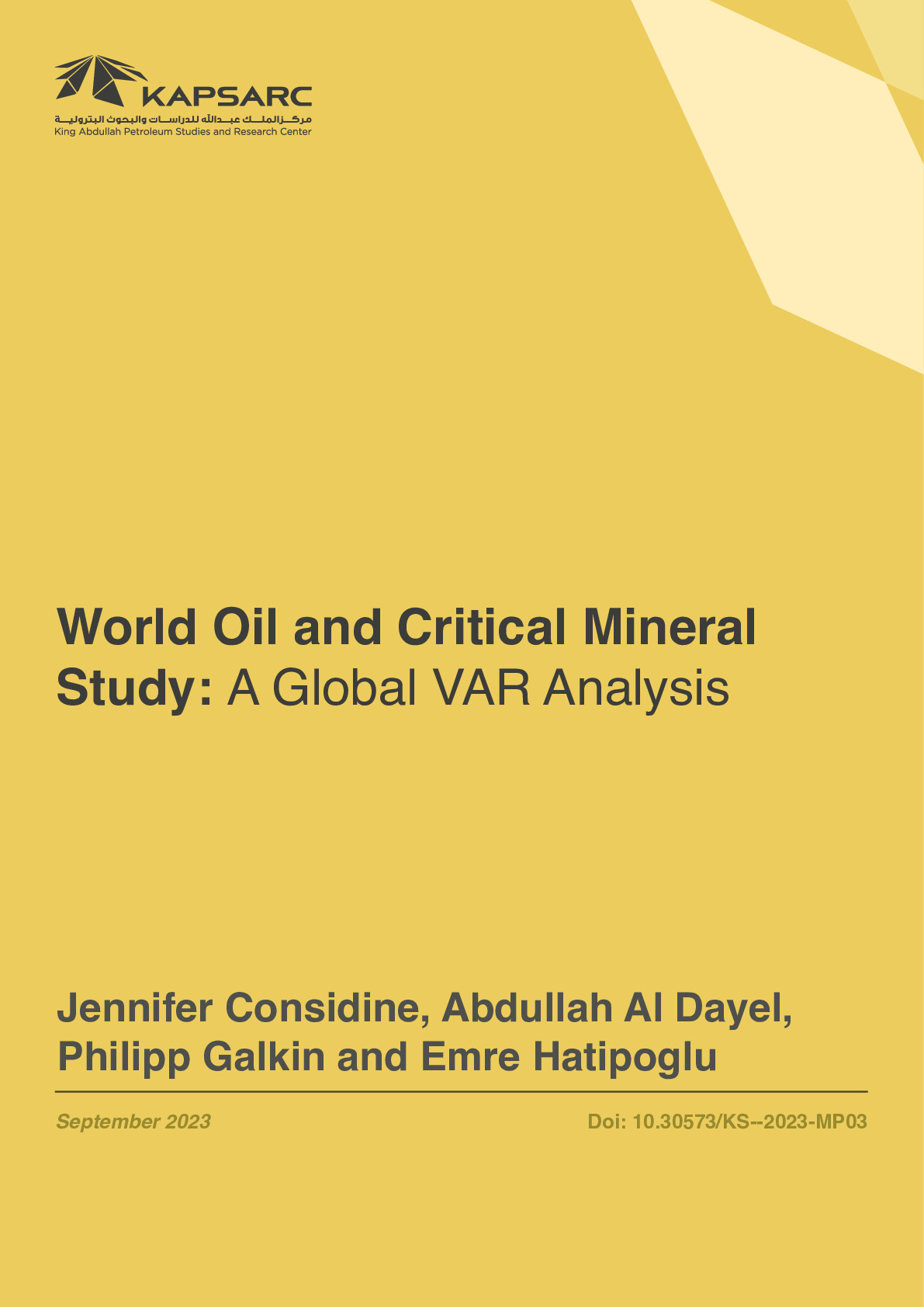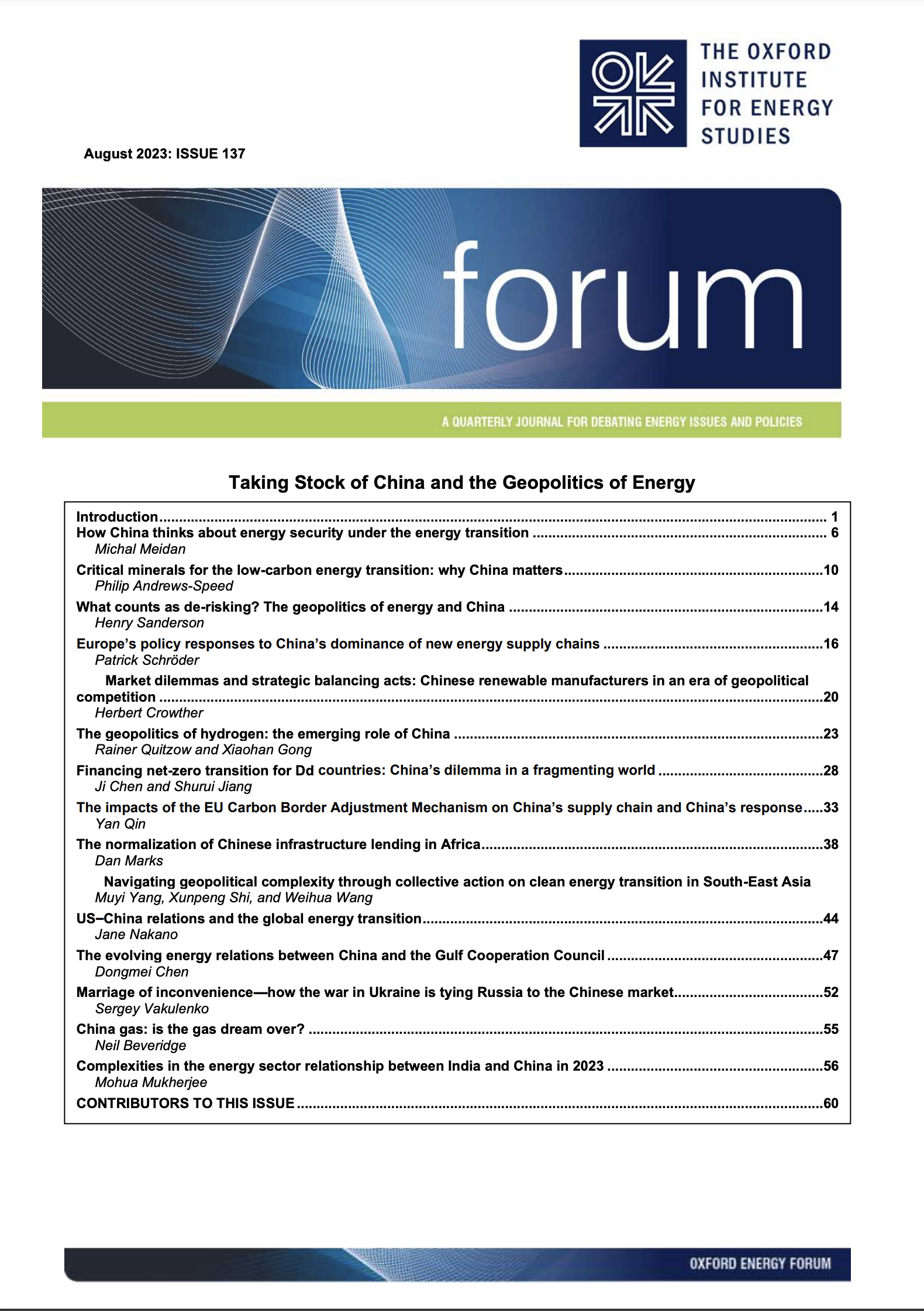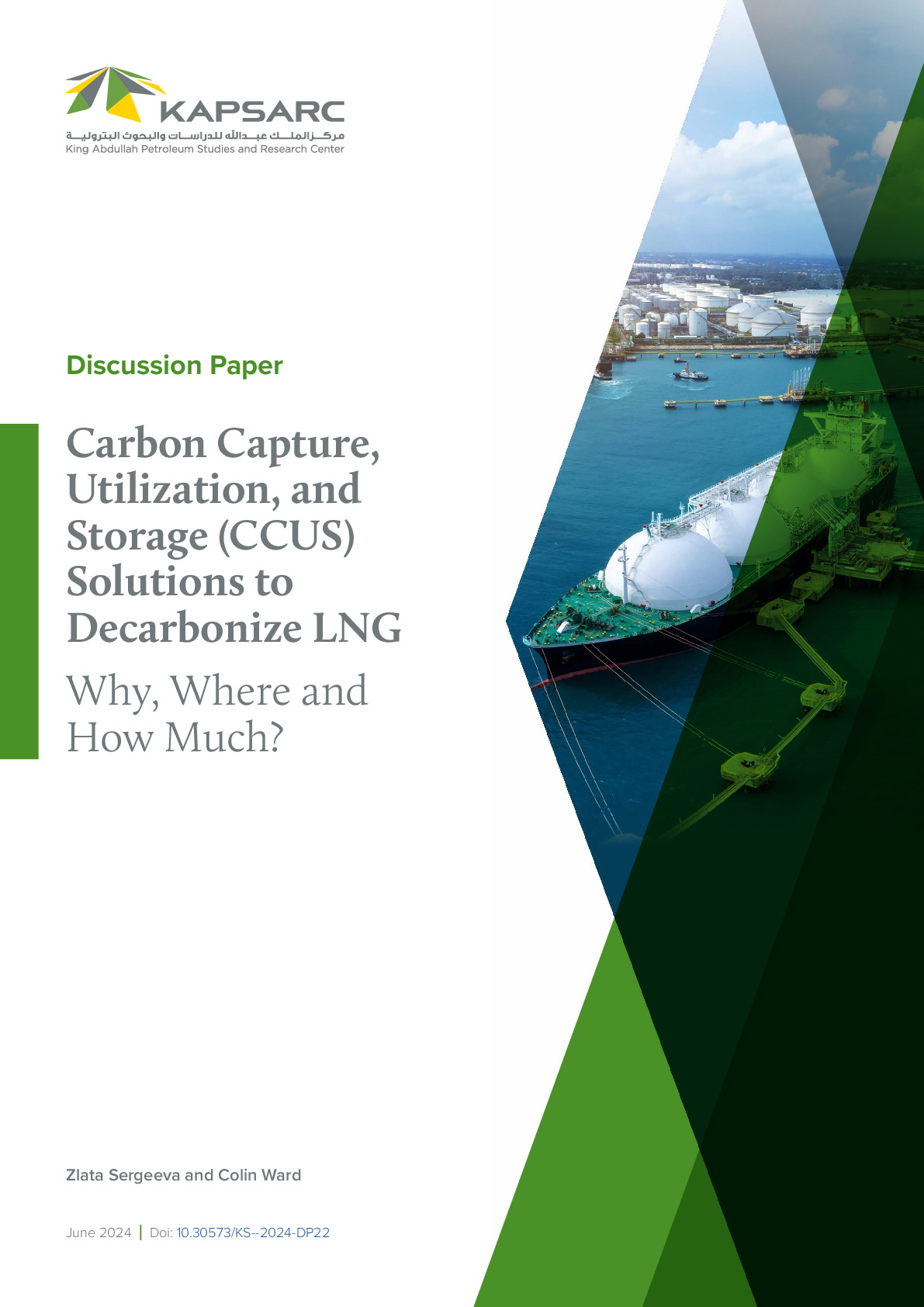Cost‒benefit analysis (CBA) has been used to assess investment projects for decades with the aim of quantifying their externalities and potential impacts on social welfare. However, the domain where CBA is applied has been primarily limited to direct public financing in several sectors where such impacts are perceived to be the most pronounced. This study explores the applicability of CBA principles to petrochemical investment and utilizes the proposed framework to assess a sample ethylene production project.

Visiting Researcher
Philipp is a visiting researcher at KAPSARC, working on the economic and policy aspects of energy supply and trade. Philipp’s…
Philipp is a visiting researcher at KAPSARC, working on the economic and policy aspects of energy supply and trade. Philipp’s work at KAPSARC includes evaluating the effect of preferential trade agreements on energy flows, analysis of OPEC energy policy and deriving insights related to China’s energy policy and its impact on global markets through modeling energy supply sectors.
Expertise
- International economic relations
- Regional and country studies and policy analysis
Publications See all Philipp Galkin’s publications

The Effects of a Shock to Critical Minerals Prices on the World Oil Price and Inflation
Cost‒benefit analysis (CBA) has been used to assess investment projects for decades with the aim…
1st November 2023
World Oil and Critical Mineral Study: A Global VAR Analysis
Cost‒benefit analysis (CBA) has been used to assess investment projects for decades with the aim…
26th September 2023






